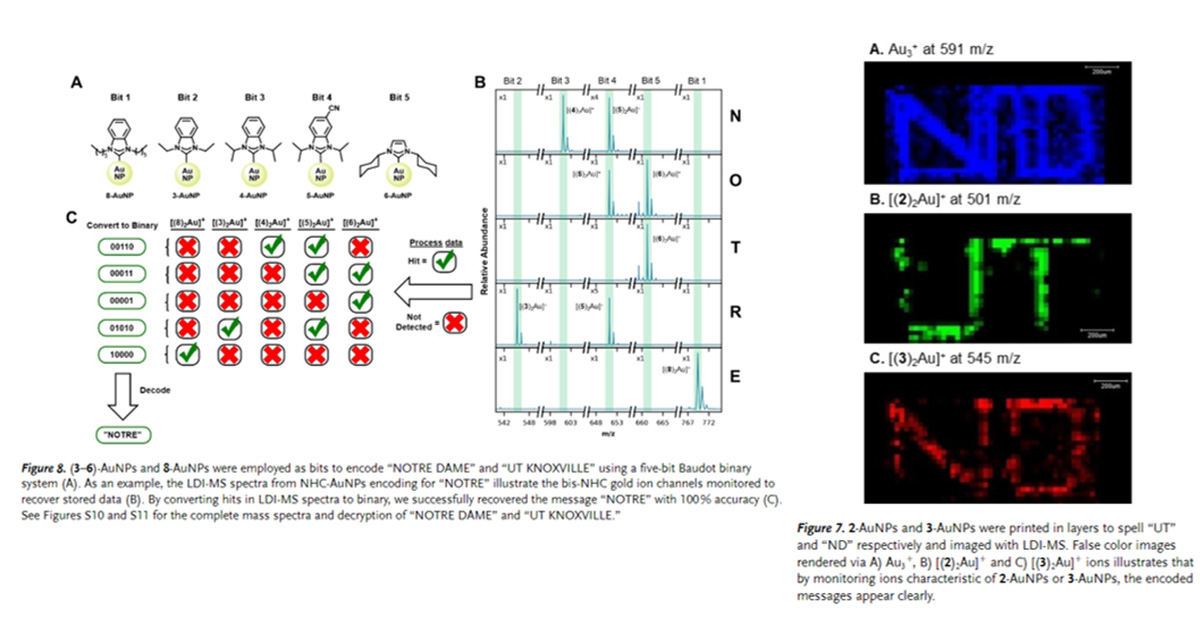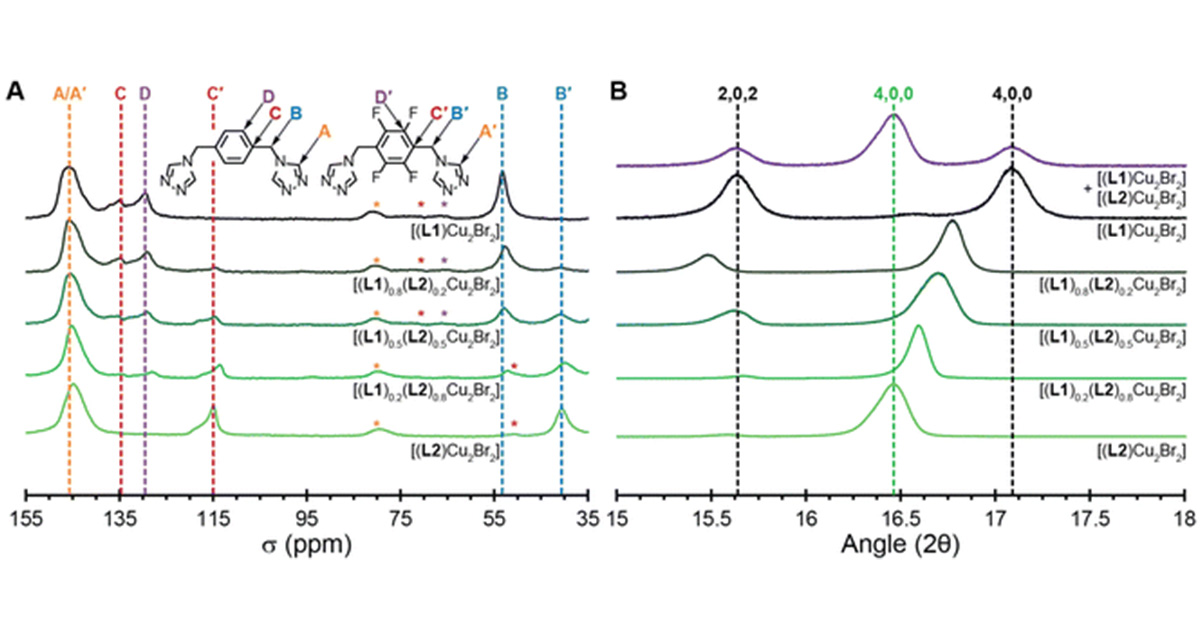Jenkins Lab Published in Angewandte Chemie
The Jenkins Lab published their research “Giving Gold Wings: Ultrabright and Fragmentation Free Mass Spectrometry Reporters for Barcoding, Bioconjugation Monitoring, and Data Storage” in the international journal Angewandte Chemie. Graduate students Isabel Jensen and Gurkiran Kaur were co-authors on the piece.
The widespread application of laser desorption/ionization mass spectrometry (LDI-MS) highlights the need for a bright and multiplexable labeling platform. While ligand-capped Au nanoparticles (AuNPs) have emerged as a promising LDI-MS contrast agent, the predominant thiol ligands suffer from low ion yields and extensive fragmentation.
In this work, they developed a N-heterocyclic carbene (NHC) ligand platform that enhances AuNP LDI-MS performance. NHC scaffolds are tuned to generate barcoded AuNPs which, when benchmarked against thiol-AuNPs, are bright mass tags and form unfragmented ions in high yield. To illustrate the transformative potential of NHC ligands, the mass tags were employed in three orthogonal applications: monitoring a bioconjugation reaction, performing multiplexed imaging, and storing and reading encoded information.
These results demonstrate that NHC-nanoparticle systems are an ideal platform for LDI-MS and greatly broaden the scope of nanoparticle contrast agents.








 A Chevron oil refinery in Richmond, California.
A Chevron oil refinery in Richmond, California.
